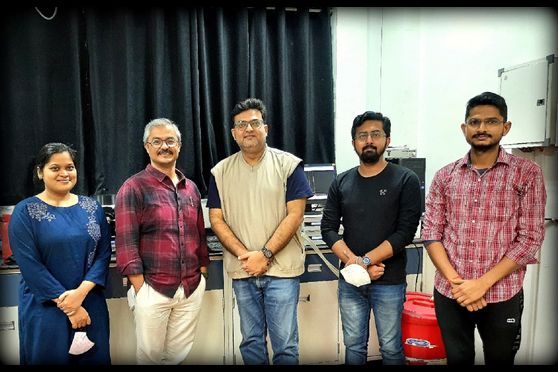IISER Bhopal develops process for producing nanostructured silver


A team of researchers from the Indian Institute of Science Education and Research (IISER) Bhopal has developed a safe and easy procedure to produce silver nanomaterials that can be used as antimicrobial agents.
Saptarshi Mukherjee, professor of Chemistry, and Chandan Sahi, professor of Biological Sciences, are part of the team. The paper has been authored by Subhajit Chakraborty, Preeti Sagarika, Saurabh Rai, Chandan Sahi, and Mukherjee.
“Silver, the common ornamental metal, when present as nano-sized particles – one hundred thousand times smaller than the width of a single human hair – has good antimicrobial properties,” Mukherjee said.
Medical practitioners have used silver in different forms to prevent infections and promote healing from ancient times.
“Generally, silver nanomaterials are produced using toxic precursors that often generate harmful by-products inside the system,” said the lead researcher. It was a problem that the IISER Bhopal team has overcome. The researchers used the amino acid Tyrosine for producing nanomaterials of silver that had excellent antimicrobial properties. Tyrosine is present in other food items such as meat, dairy, nuts, and beans.
The researchers treated silver nitrate, which is the main component of the indelible ink used during elections in India, with tyrosine in the presence of caustic soda. Tyrosine functioned as a reducing agent and capping agent to produce silver nanomaterials. On examining the product under high-resolution microscopes (TEM and SEM), they found two forms of silver nanostructures – nanoclusters and nanoparticles.
The nanoparticles were found to kill microbes such as S. cerevisiae (associated with pneumonia, peritonitis, UTI etc.), C. albicans (oral and genital infections), E. coli (stomach infection), and B. cereus (stomach infection), in about four hours.
“As our product comprises two components, it can be used for multiple purposes: from photophysical studies to applications in biological systems,” said Mukherjee, on the practical implications of this research work.